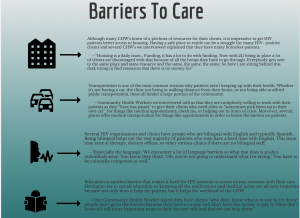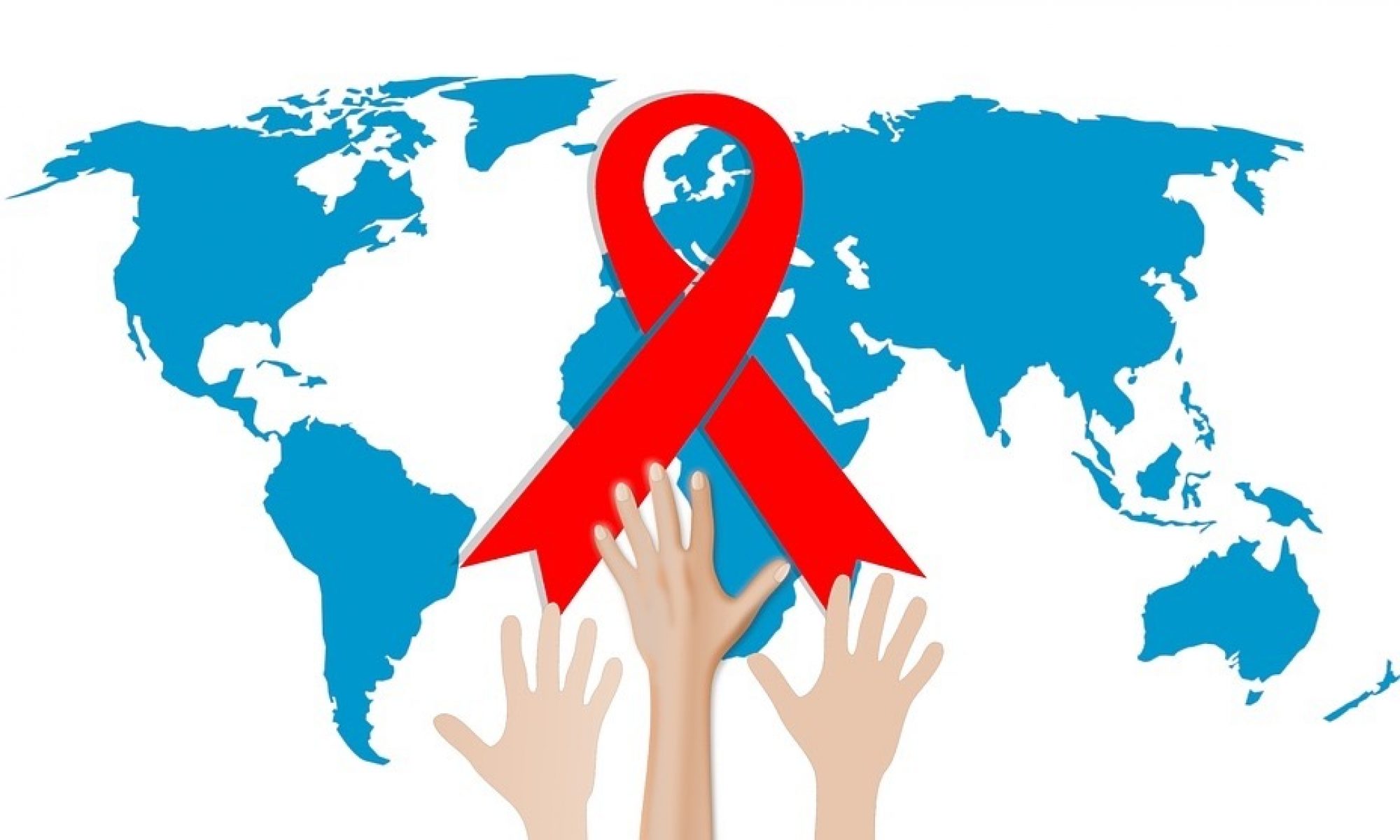Although HIV targets no specified person, age group, race group, sexual orientation, or ethnicity, some racial groups and minorities are disproportionately affected. Stigma is defined as a “mark of disgrace” that can be tied to a certain person, occurrence, or trait (Dictionary 2020). The groups of people who are most at risk of contracting HIV are men having sex with men (MSM), Black and Brown racial minorities, those who are using drugs, and those who are incarcerated. Like many other diseases speaking candidly and honestly about HIV makes it such a taboo topic in our society. There are so many people that have it but refuse to tell anyone that they do in fear of backlash or outright discrimination.
Housing:
Specifically, finding safe and affordable housing in Connecticut or yet alone in Hartford can be difficult. One CHW advised that if someone is “HIV-positive and is looking for housing they will get the housing faster” (Interviewed 4/9/2020) compared to an HIV-negative person looking for housing. Clients aren’t always aware of what they may qualify for under the Ryan White Program, this is where the all-important services of what a CHW is come into play.
Another CHW who works with HIV patients explained “Housing is a daily issue… Funding, it has a lot to do with funding. Now with 211 being in place a lot of clients are discouraged with that because of all the hoops they have to go through. Everybody gets sent to the same place and same resource and the same, the same, the same. So here I am sitting behind this desk trying to find resources that there is no money for” (Interviewed 3/10/2020). Although many CHW’s know of a plethora of resources for their clients it is imperative to get HIV patients better access to housing. Having a safe place to reside can be a struggle for many HIV- positive clients and several CHW’s we interviewed explained that they have many homeless patients.
Transportation:
Community Health Workers we interviewed told us that they are completely willing to work with their patients as they “have bus passes” to give their clients who need rides or “sometimes pick them up in our own car” (Interviewed 3/10/2020) for things like medical appointments, check-ins, getting food from food-share or helping out in times of crisis. Another CHW shared, “I went to pick up my client at their house. I’ll do that when Medical Transportation is unable to. Either because they are at full capacity or an appointment for another client might be at a time they already have to pick somebody else up. I will go and pick them up myself so they don’t miss their appointment” (Interviewed 3/12/20). What is important to take away from this type of situation is that Medical Transportation is a billable thing to the insurance whereas a CHW providing the same exact service is not. Moreover, of the locations that have enough funding to cover CHW’s care is very limited. If a service like this was billable to the insurance their clients have, it would help to free and allocate funding to another needed area.
Language Services:
Fortunately, several HIV organizations and clinics have people who are bilingual with English and typically Spanish. This knowledge of dual language ability helps out the vast majority of LatinX or Hispanic patients who may not be the best with the English language. This issue may arise at therapy, doctors’ offices, or even CHW locations if they do not have a bilingual person or staff. When asked what skills are necessary to perform your job effectively one CHW stated, “Especially the language. We encounter a lot of language barriers so what that does is pushes individuals away. You know they think, ‘Oh, you’re not going to understand what I’m saying.’ You have to be culturally competent as well.”’ (Interviewed 3/10/2020)
These patients just want to be heard and understood properly, but sadly this is not always the case. Language can still be a problem as another CHW stated who is fluent in Spanish and English but “does not know Polish” (Interviewed 3/10/2020). This CHW expressed the importance of being able to speak a language that a client can understand and not being able to convey what is needed with their client due to language issues. Henceforth, her ability to reach more patients is limited and has the potential to cause negative health outcomes for clients who need this particular service.
Education:
These barriers to care are serious and should not be taken lightly as it affects the lives of many people who are living with HIV. By working with a CHW, health care provider, their community resources and having access to what the Ryan White Program can offer; some of these barriers can be lessened, lifted, or even eliminated thanks to the hard work of a CHW. Though a CHW’s work is never done, the work they do helps to improve the health outcomes of their clients vs. one who doesn’t have access to CHW care. Other medical staff such as doctors can be very busy or at full capacity for seeing patients, a CHW helps to ensure these patients get the necessary medical care they need. Of course there is a vital role that the client plays in their healthcare as well. The ‘leg work’ that a HIV-positive patient must put in order to improve their life. A CHW disclosed that this work with patients “is not a 50/50 kind of deal” but instead “it is 80/20 because the patient must be willing to take the advice from the CHW and apply it to their life”(Interviewed 3/10/2020) in order to stay alive and be healthy. The patient has to listen to the CHW as they guide them in leading better lives with HIV.

